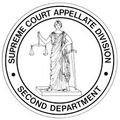June
2014
New York Appellate Court Finds Prompt Pay Law Creates Implied Private Right of Action
In March 2014, the Second Department of New York’s Supreme Court Appellate Division held that the State’s “Prompt Pay Law,” N.Y. Ins. Law § 3224-a creates an implied private right of action by health care providers and patients against insurers for violations of the law. Maimonides Medical Center v. First United Am. Life Ins. Co., 116 A.D.3d 207, 981 N.Y.S.2d 739 (N.Y. App. Div. Mar. 5, 2014).
In Maimonides Medical Center, a not-for-profit hospital in Brooklyn (“Maimonides”) sued First United American Life Insurance Company (“First United”), alleging, inter alia, that First United violated the Prompt Pay Law when it failed to pay Maimonides in full for services rendered to six patients during the period from 2007 to 2011 and never provided written notice that it was not obligated to pay such amounts. First United moved to dismiss, arguing that there is no private right of action – express or implied – under the Prompt Pay Law. The trial court denied First United’s motion to dismiss, concluding that the Prompt Pay Law expressly provides a private right of action. First United appealed.
Noting that this was a matter of the first impression, the Appellate Division affirmed the trial court’s decision, although it found that a private right of action in favor of health care providers and patients is implied – rather than express –under the statute. In reaching its conclusion, the Appellate Division rejected the argument that enforcement of the Prompt Pay Law is vested solely in the New York State Superintendent of Insurance. Instead, the Court found that “the law was directed toward the protection of health care providers and patients from late payment of claims,” and the remedies available to the Superintendent would not adequately address the individual harm to those parties. Accordingly, the Court concluded that “the Supreme Court properly determined that private enforcement of the specifically created right to full payment plus interest in settlement of an untimely paid or disputed claim, in addition to administrative enforcement of general practices, would be fully consistent with and enhance the legislative scheme.”
To Read More about Maimonides Medical Center v. First United Am. Life Ins. Co. click here



